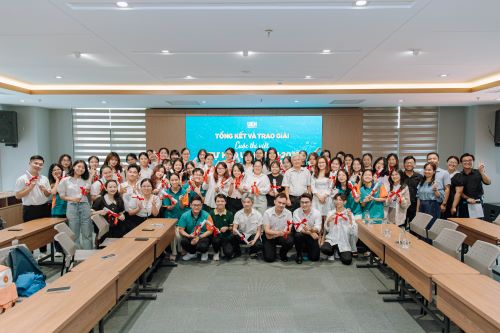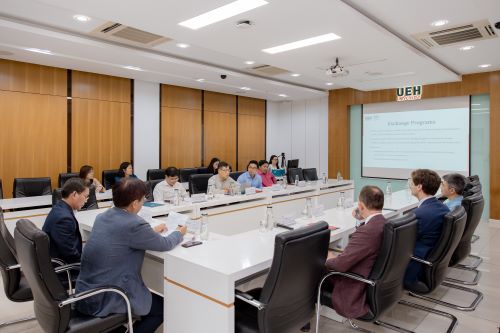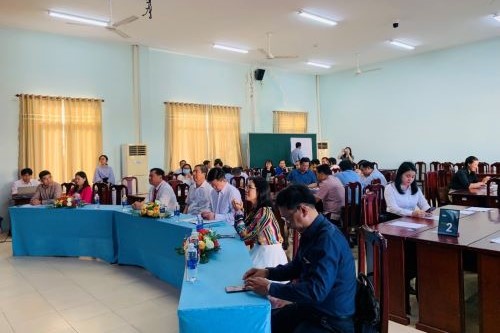
Digital Transformation Within Vietnamese Tourism
In the context of the 4.0 technology revolution, the digital economy has been transforming interacting with tourists and marketing tourism services and opening up new and innovative ways in order to provide effective tourism services and enhance the visitor experience. Vietnamese tourism industry, in recent years, has been achieving certain achievements; including efforts to transform from marketing, market access to management through the application of information technology systems. The objective of this article is to systematize the contents related to digital transformation in tourism, to identify the current situation and trends of digital transformation in tourism in Vietnam, thereby, proposing possible solutions to relevant parties.

Image of Hạ Long Bay. Source: Collected photos
For more than two decades, the global travel industry has been at the forefront of digital innovation, also, leading the way in business ecosystem evolution, becoming one of the fastest growth areas in the world (UNWTO, 2018), making an important contribution to socio-economic development. In Vietnam, the tourism industry has been achieving certain achievements, with growth prospects in terms of international arrivals, competing with Singapore, Malaysia and even Thailand. Participants in this field have applied information technology to keep up with the trend of the times, going from digitization to digitalization, digital transformation and digital reinvention.
04 important points in the digital transformation process in the tourism industry in Vietnam
First, the digital transformation in tourism has gone through four stages. In the face of rapid technological development, the tourism industry requires new thinking related to the industry, new product development models, new business methods and ecosystems and new approaches to support besides capacity building (Table 1). Effective, targeted responses to digital transformation require a collaborative network and learning environment established; therefore, SMEs can be inspired by savvy businesses technology both inside and outside the tourism industry and can learn and collaborate together. The public sector and professional associations have an important role to play in establishing and nurturing this environment. Therefore, the solution related to the training facility is essential.
|
Changing the traditional way with new technology |
New configuration is better across interfaces |
New business model, value chain and ecosystem |
Changing roles of consumers and providers
|
New role of tourism organizations |
|
Big data improves management. The shift to the traditional way for executives and the pressure to re-accept traditional business models. Rise of the sharing economy, business on demand. New value creation opportunity. The emergence of global value chains. |
Digitalization allows for better customization of the visitor’s experiences, new custom destinations emerge. |
New actors listed as online platforms act as information intermediaries (e.g. Expedia, TripAdvisor, etc.) that provide a variety of services. Digital platforms (e.g. Airbnb, Uber) are expanding beyond accommodation products to manage, coordinate, and facilitate the visitor experience at a destination. |
Visitors have become active consumers producing and consuming their own experiences (prosumers). They take on different roles, including booking, (self) guiding, evaluating, sharing and marketing the destination.
|
Destination marketing and product development, the traditional role of tourism organizations, is being changed, and these organizations are increasingly taking on a capacity-building and promoting role. However, less and less direct influence on destination development, innovation and marketing. |
Table 1: Transformation in tourism due to digitization
Second, the digital transformation experience of some countries shows that they often invent ways of managing through the national data information system. Building this data system requires digital transformation of many stakeholders and this is considered as one of the first solutions to be implemented.
Third, the current situation of digital transformation in Vietnam's tourism industry includes both achievements and limitations. In terms of achievements, institutions and policies of the Party and Government have created favorable conditions for localities to build smart tourist destinations; readiness index for information technology development and application is rather positive; Many localities have been implementing smart destination management, businesses have also transformed the way they manage and operate in a lean way. Regarding limitations, specific mechanisms and policies are still lacking; ICT readiness ranking index in Vietnam's tourism is still low compared to the world; enterprises face obstacles in terms of resources and financial resources in the process of digitization; The online travel market is slow to develop.
Fourth, researches to forecast the trend of digital transformation in tourism in Vietnam will include: utilities to support smart tourism become popular; personalization is increasingly amplified; boom of the sharing service economy, many integrated management platforms for travel businesses were born; new wave of jobs positively and negatively affect labor resources; user-based destination marketing strategy; Smart tourism destination is invested.

Photo: Stages of digital transformation of tourism businesses. Source: Updates and adjustments from Dredge et al. (2018).
In the report “Going Digital: Shaping Policies, Improving Lives”, the OECD (2019) pointed out that the gap between technology development and public policy needs to be significantly narrowed in order to reap the benefits and address the challenges of the digital age. Destination businesses need to fully embrace new technologies to stay competitive and capitalize on their potential for innovation, productivity and value creation. Therefore, the article has built a solution model including stakeholders: government (ministerial, sectoral, local), businesses and educational institutions.
In summary, the article aims to strengthen the theoretical foundation of digital transformation in the digital economy in general and the tourism industry in particular in Vietnam; assessing the situation; providing the trends as well as solutions that can be performed with stakeholders and the solution model that the authors propose should be able to expand further research.
Please refer to the full article Digital transformation in Vietnamese tourism here.
Author group: MSc. Lê Hữu Nghĩa, MSc. Nguyễn Thị Mỹ Nhân, BA. Đỗ Thị Tố Oanh, UEH Tourism Faculty.
This article in series spreading researches and applied knowledge from UEH “Research Contribution For All – Nghiên Cứu Vì Cộng Đồng” message, UEH would like to invite dear readers Newsletter ECONOMY NUMBER #39 “JUSTICE ADMINISTRATIVE PROCEDURES TRANSFORMATION IN VIETNAMESE COURTS IN DIGITAL TRANSFORMATION ERA”
News, Photos: Author group, UEH Department of Marketing – Communication.


![[Podcast] Social policy response towards the COVID-19 pandemic in some countries (Part 2): Lessons for Vietnam](/images/upload/thumbnail/ueh-thumbnail-031128-122823.png)
![[Podcast] Upon Artificial Intelligence (AI) Improving Store Layout Design: An Overview Study](/images/upload/thumbnail/ueh-thumbnail-104011-010224.png)


